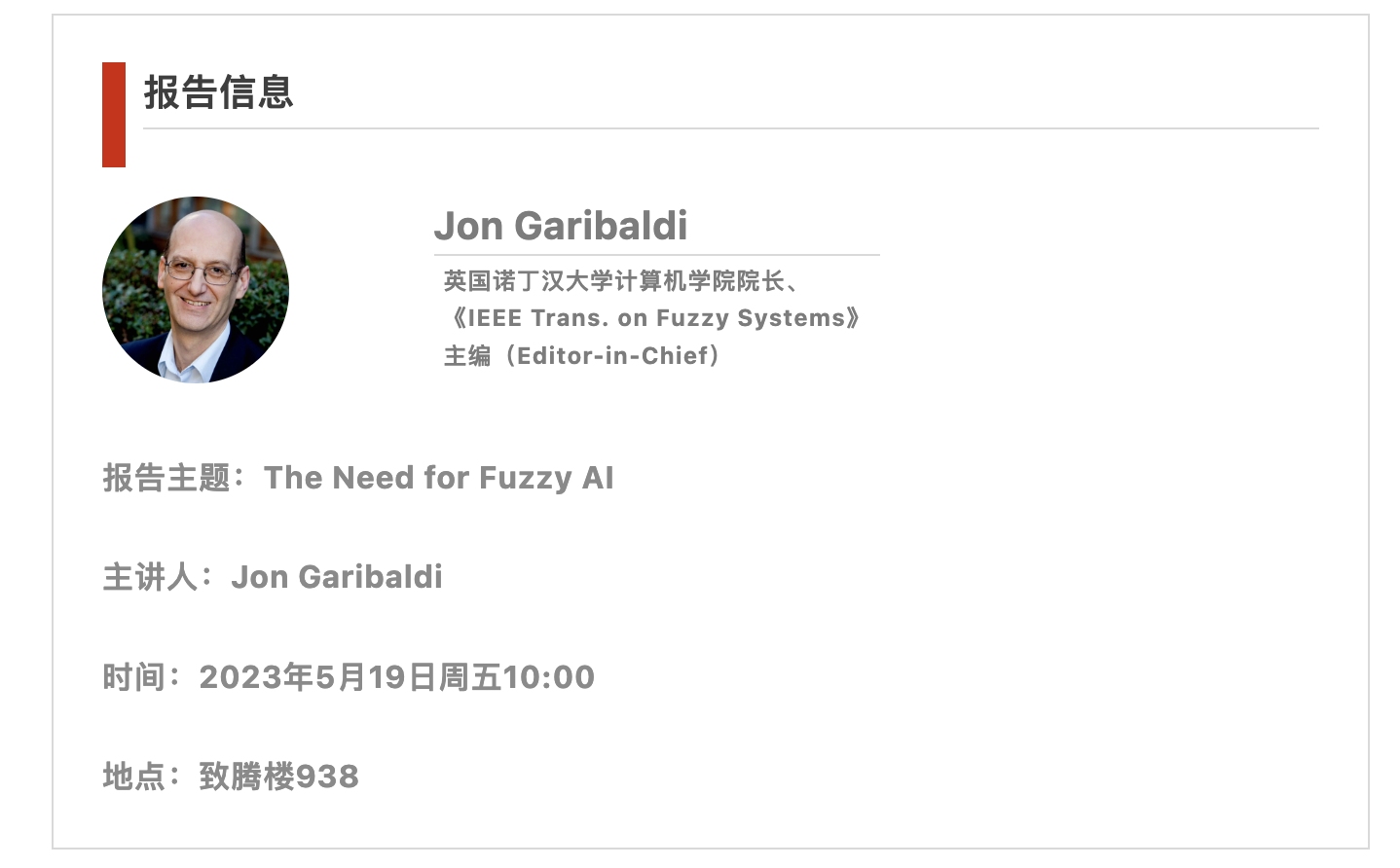
01
Abstract
Artificial intelligence methods for decision support are attracting widespread attention around the world. In this talk, I will explain some fundamentals of fuzzy sets and systems, with particular focus on fuzzy rule-based inference, explaining how these techniques have a role to play in the quest for AI systems which can be understood by humans - namely Explainable AI. I will present some current research into using advanced fuzzy techniques for modelling more complex decision problems. In doing so, I will explain hierarchical fuzzy systems (fuzzy systems which comprise multiple self-contained fuzzy sub-systems) and how they can contribute to explainability in larger-scale problems. I will also cover some recent research advances in non-standard fuzzy sets, which can be used to model human reasoning in an understandable manner, and discuss how fuzzy concepts can be applicable to Explainable AI (XAI).
02
Biography
Professor Jon Garibaldi is Head of School of Computer Science at the University of Nottingham, Head of the Intelligent Modelling and Analysis (IMA) Research Group, and Founding Director of the University of Nottingham Advanced Data Analysis Centre. His main research interest is in developing intelligent techniques to model human reasoning in uncertain environments, with a particular emphasis on the medical domain. Prof. Garibaldi has been the PI on EU and EPSRC projects worth over £3.5m, and CoI on a portfolio of grants worth over £80m. Prof. Garibaldi has published over 300 articles on fuzzy systems and intelligent data analysis, including over 100 journal papers and over 200 conference articles. Prof. Garibaldi was the Editor-in-Chief of the IEEE Transactions on Fuzzy Systems, the leading international journal in the field of fuzzy methods, from 2017-2022. He was Publications Chair of FUZZ-IEEE 2007 and General Chair of the 2009 UK Workshop on Computational Intelligence, and has served regularly in the organising committees and programme committees of a range of leading international conferences and workshops, such as FUZZ-IEEE, WCCI, EURO and PPSN. He is a Fellow of the IEEE.